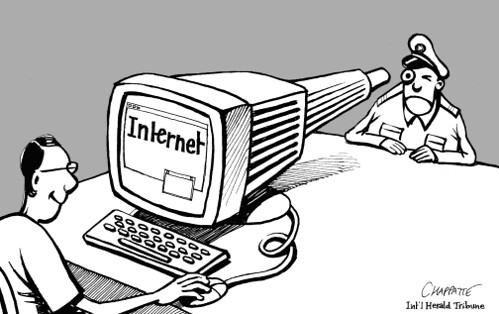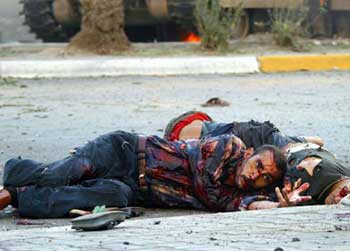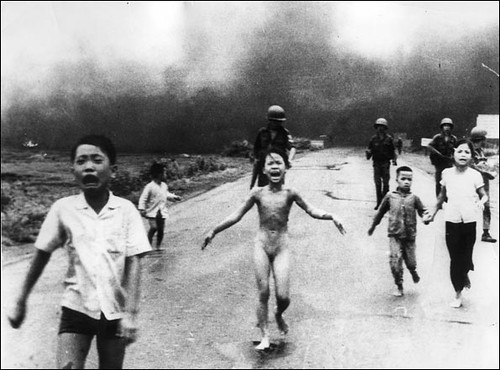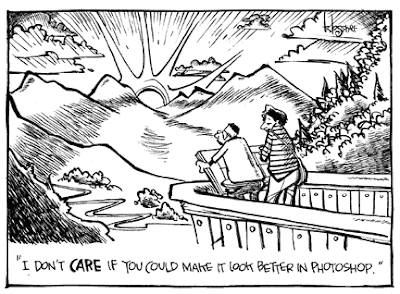
This is the last blog for my eculture subject. I have to write about my prediction for the future. So let’s take the crystal ball out of the closet and check what the future has for us. What do I see for the future?

 I would like to talk more generally of the possible overtaking of the Internet by the governments or the big multinationals. For the moment, in the year 2007, it is still possible for anyone to touch any subject and to write nearly anything on the Internet. This can be any subject like those we talked about during the lecture: extremists, cybersex, representation of war, and so on. Everyone have different opinions of what is acceptable or not, and some people will find the extremists world or the cybersex appealing while some others will find these are subjects that should not be allowed on the Internet.
I would like to talk more generally of the possible overtaking of the Internet by the governments or the big multinationals. For the moment, in the year 2007, it is still possible for anyone to touch any subject and to write nearly anything on the Internet. This can be any subject like those we talked about during the lecture: extremists, cybersex, representation of war, and so on. Everyone have different opinions of what is acceptable or not, and some people will find the extremists world or the cybersex appealing while some others will find these are subjects that should not be allowed on the Internet.It does bring me to the big question: should we allow our government or upper power to have a say of what should or should not be written on the Internet? We are - in Australia, America, Europe and other countries around the world - in what our governments are proud to call (it sells positively the country abroad!) a democratic country where everyone should have the freedom of speech. So even if we are often disturbed with some of the things written or showed on the Internet, should we allow our government to take away our freedom of speech, our democratic rights by allowing them to have a say in what is and what is not allowed on the Internet?

I believe the word ethic still counts a lot in the modern world of today. They are forbidden subjects, subjects that no one should take lightly, like the extremists and their unilateral view of the world, or like the world of sex and the use of children for the only purpose of the pleasure of some adult’s viewers. These areas should be controlled, like the use of the children for the sex industry totally banned, not only on the Internet, but also outside the Internet area.
Unfortunately, by allowing governments to have a total control, to edict laws for the Internet users, to tell us what THEY think is right or wrong, we have the risks of loosing what we have fight for, our freedom of speech, our democratic rights. How can we be sure that if we were allowing the people on the power then would not in a near future arrest whoever they want, citizen that simply do not always agree with their governments, citizens that are trying to make others see another side of the story.
In fact, we could say that the world of extremist is pretty similar to the world of the government. They both want citizen that only see their points of views without asking questions, without thinking critically.
So I would say that we should think ethically to the question of what can be and what cannot be written and shown on the internet, like children used in cybersex, crimes against minorities shown on the internet by extremists groups like KKK in order to show the world how powerful they are. These are definitely things that should never appear anywhere, in flyer, newspaper, magazine or the Internet. But we should not forget that most importantly we should protect our democratic rights and freedom of speech like we would protect our own child. If we don’t and let go than we will have left an opening for powerful people to have a say to whatever we think, whatever we write on the Internet or anywhere else, even perhaps arrest us and put us in prison, or more extremely kill us if we think we are dangerous to them. We can think to the Nazis, China and other horrors stories we have heard or read on people having their rights stripped by the government at the power at a specific period.
 The Internet has opened many possibilities and they have the most time been used with a positive approach but as always they are some that will use the Internet negatively. Only the future will tell us what have been done of this marvellous encyclopaedia, this marvellous knowledge that is the Internet. I hope one day our future generation will be proud of the advance of the technology the ancient did and not be ashamed of the negative use and repercussion the past generations have made of the Internet. I hope in the future, there will still exist people that can openly critically see, think, and tell about important subjects, on the Internet and more generally in every aspect of life on earth.
The Internet has opened many possibilities and they have the most time been used with a positive approach but as always they are some that will use the Internet negatively. Only the future will tell us what have been done of this marvellous encyclopaedia, this marvellous knowledge that is the Internet. I hope one day our future generation will be proud of the advance of the technology the ancient did and not be ashamed of the negative use and repercussion the past generations have made of the Internet. I hope in the future, there will still exist people that can openly critically see, think, and tell about important subjects, on the Internet and more generally in every aspect of life on earth. But I must say I am a bit of a pessimist on this subject and I do believe that in a nearer future than what we think, we will have slowly given to the power of governments and big enterprise and their will be only a handful of critical thinkers that will be afraid for their life as they will disturb the right order of the non-thinker citizen of the internet generation.















 I personally can see that after more than ten years away from my birth country, I am finding difficult to not have a real identity, I am Australian citizen but I am equally a Swiss citizen, and I am finding it more difficult as the years pass,
I personally can see that after more than ten years away from my birth country, I am finding difficult to not have a real identity, I am Australian citizen but I am equally a Swiss citizen, and I am finding it more difficult as the years pass, 








 Nowadays we have the Internet and what is called cybersex. What is so different to what is written in the “Marquis de Sade” or a Union - or other like it - magazine, is that you do not need anymore to be eighteen to have access to whatever domain of sex you are interested in. The Internet has allowed anyone to have access to millions of different sex websites, with or without accident, and their anonymity is nearly always assured.
Nowadays we have the Internet and what is called cybersex. What is so different to what is written in the “Marquis de Sade” or a Union - or other like it - magazine, is that you do not need anymore to be eighteen to have access to whatever domain of sex you are interested in. The Internet has allowed anyone to have access to millions of different sex websites, with or without accident, and their anonymity is nearly always assured.

 We can read on
We can read on 








